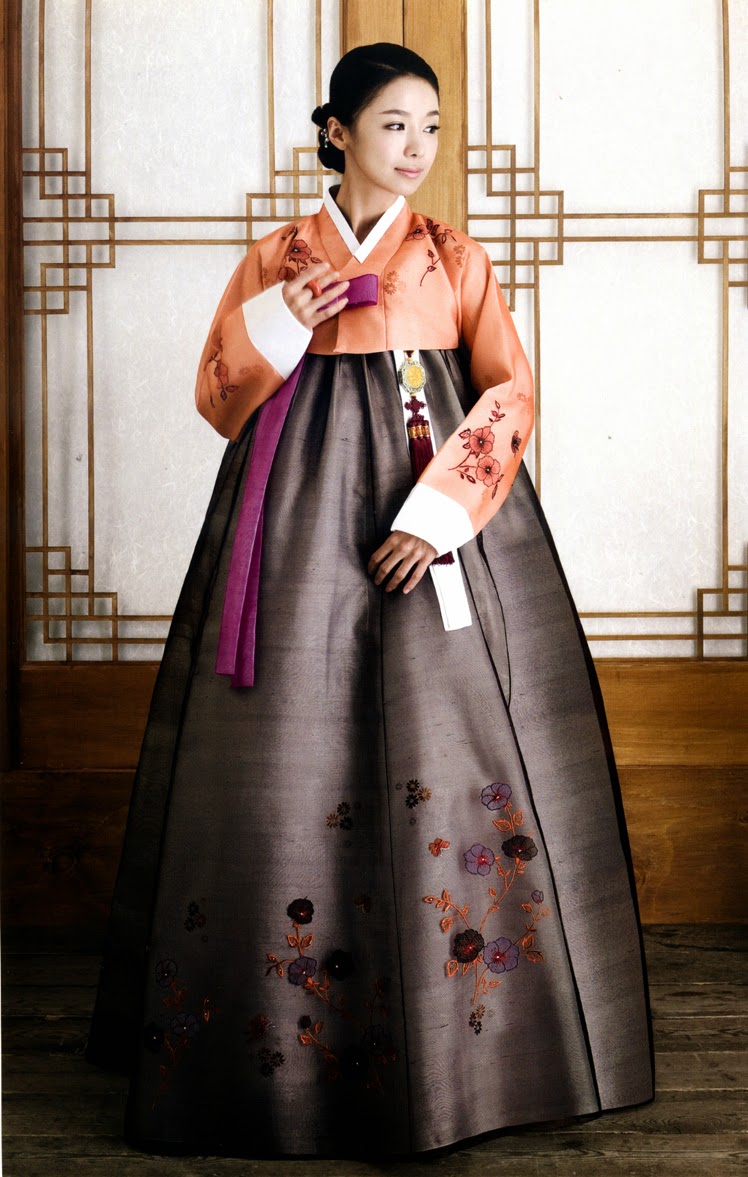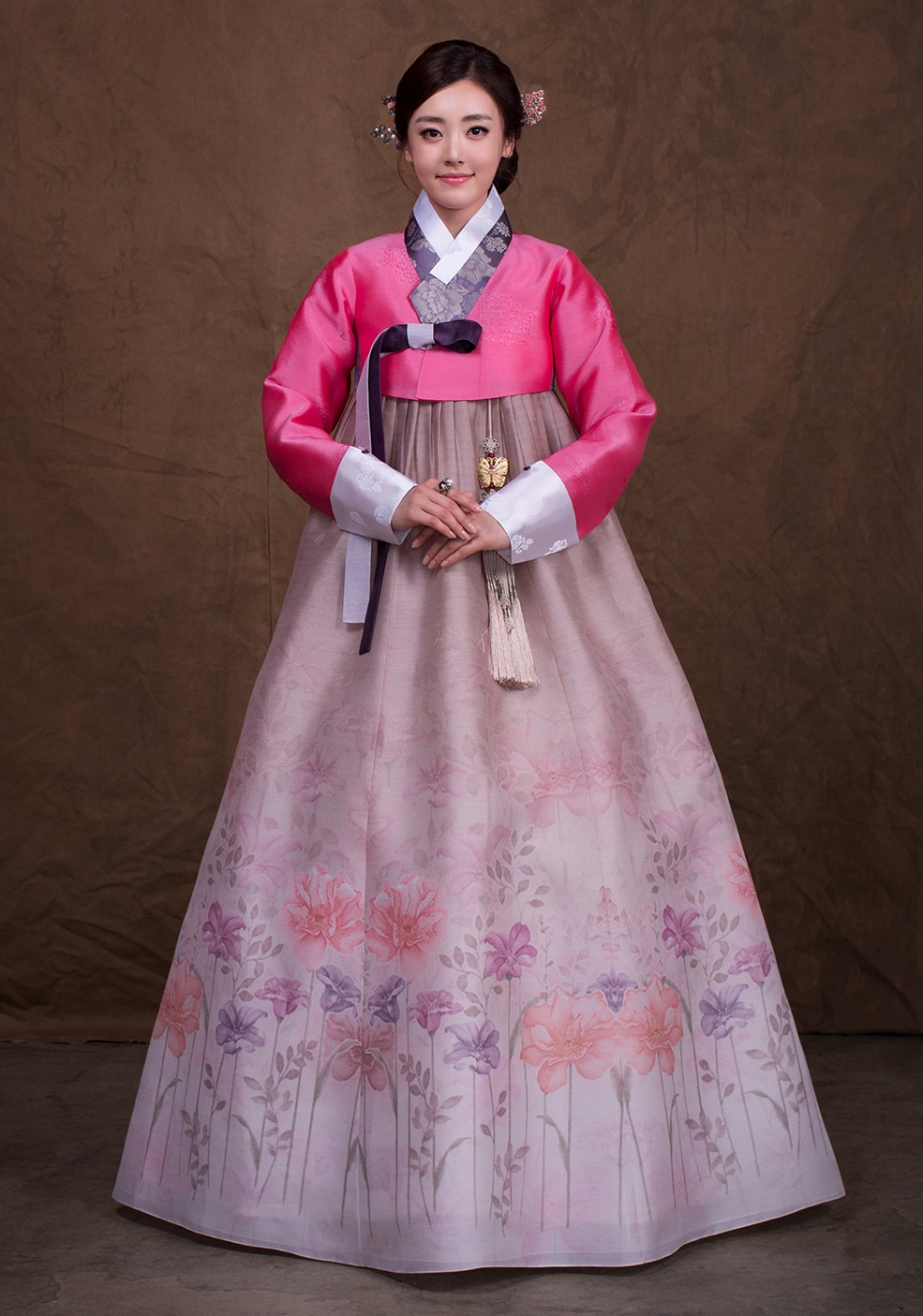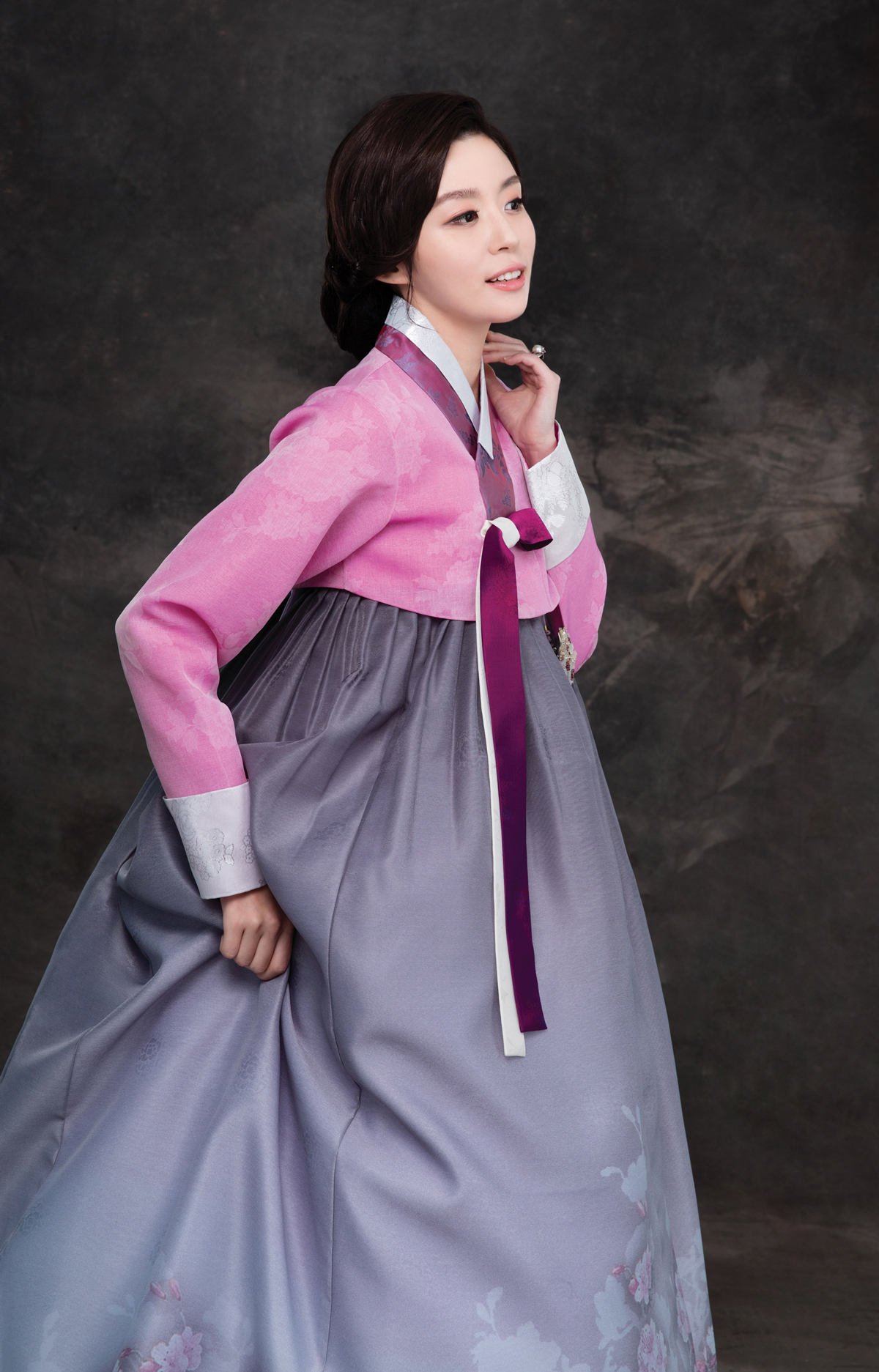
korean wedding dress traditional (Hanbok) FASHION STYLE
Hanbok is a traditional South Korean dress which consists of two parts; the upper part, called jeogori, and the lower part, baggy pants called baji for men, and a long skirt called chima for women. Hanbok used to be the clothes worn daily by the people of South Korea. However, with the entry of other cultural influences, a shift occurred.

Buy Female Traditional hanbok korean dress Lady Palace Korea Wedding Dance
The Korean hanbok, which has roots in present-day northern Korea, northeast China and part of Mongolia, was designed to facilitate ease of movement.The fundamental structure of the traditional Korean dress, specifically the jeogori (jacket), baji (trousers) and chima (skirt), was established during the Three Kingdoms of Korea (57BCE to 668CE), and the design features have remained relatively.

Asian Folk Wardrobe Korean traditional dress, Hanbok, Korean outfits
Modern and Chic Bridal. Make an appointment to see our beautiful, curated selection of wedding dresses here at LEEHWA! LEEHWA is a one-stop shop for couture Korean hanboks as well as designer brand-name bridal gowns, with options to both PURCHASE and RENT. We are a family business that has been serving as the bridge between Americans with the.

한복 Hanbok Korean traditional clothes[dress] Korean traditional dress, Traditional outfits
Look no further than HANBOKNAM. Hanbok is the Korean traditional dress that contains the ideas, customs, actions, forms, and spirit passed down from ancestors. The tradition of hanbok, or Korean traditional dress, lasting 1,600 years is the longest in the world, and can be identified by the mural paintings of Goguryeo tombs (the 4th and 6th.

Hanbok Korea traditional clothing Korean Hanbok dress shop Hanboksarang
Photo by Flora & Fauna Korean brides will most likely wear hanbok, or Korean traditional formal clothing, historically made of silk, while the groom may wear hanbok or a suit.During the paebaek.

Traditional Korean Queen Dress Korean Styles
Origin of the Traditional Korean Dress The beauty of the traditional Korean dress known as hanbok has made an impact in Korea for at least 1,600 years. Oh yes—the beauty of the Korean hanbok is certainly matched in its lasting vitality. In fact, ancient murals from the Goguryeo Dynasty depicting hanbok imagery attest to its antiquity.

Sequined Korean traditional costume hanbok female Korea palace costume hanbok dress national
Hanbok - traditional Korean dress. Produced as part of Hallyu! The Korean Wave at V&A South Kensington. Simply meaning 'Korean clothes', 'hanbok' was introduced in the late 19th century by Koreans as a term to help differentiate their everyday dress from a recent influx of western-style clothing. A century later, western clothing had.

Buy Traditional Korean Hanbok Dresses Costumes Asia Traditional Clothes Women's
girl dressed hanbok (korean traditional dress) in the gyeongbokgung palace of seoul, south korea - korean traditional dress stock pictures, royalty-free photos & images. young asian woman traveler in korean national dress or hanbok traveling into the gyeongbokgung palace with cherry blossom or call sakura in spring with blue sky and clouds at.

한복 Hanbok Korean traditional clothes[dress] ModernHanbok Korean Fashion Winter, Korean
Let's go over the basic anatomy of hanbok. Women's dresses are usually slim at the top, widening at the bottom. It consists of a 치마 (chima) (a skirt that's wrapped tightly around a woman's chest) and a 저고리 (jeogori) (a jacket to cover her shoulders). Jeogori is tied over one's chest with two strings called 고름 (goreum) .
BRIDAL HANBOK LEEHWA WEDDING & HANBOK
Hanbok (한복) is the traditional Korean dress with ancient roots. The style belongs to the era of the Joseon dynasty at the end of the 1300s, but some researchers claim that it is of Mongolian or Siberian origin. Having fallen into disuse in the 1960s, the hanbok is now used as a ceremonial dress or during particularly formal occasions.

한복 Hanbok Korean traditional clothes[dress] ModernHanbok wedding Korean outfits, Korean
Traditional Korean Outfits: Korea's traditional folk costumes and outfits leaves the visitors in awe.With a brilliant display of color, art, and style, the Korean traditional portfolio has left many wide-eyed. Korean traditional outfits are collectively called Hanbok, which included everything from tops, undergarments, overcoats, headgear, shoes, and even hairpins.

korean bride International bride, Korean traditional, Bridal traditions
The core of traditional Korean dress lies in its graceful shape and vibrant colors. It has a creative and expressive design, with a slim top and full bottom. Composition of women's dress: A woman's basic structure of hanbok includes a jeogori (jacket) secured by a lengthy tie and a vibrant, flowing skirt chima (skirt).

한복 Hanbok Korean traditional clothes[dress] A bride's hanbok worn at a traditional Korean
The gache is a large wig worn by Korean women. [citation needed] Gat: A gat (갓) is a type of Korean traditional hat worn by men along with hanbok during the Joseon period. Gulle: A gulle is a type of sseugae (쓰개), Korean traditional headgear, worn by children aged one year to five years old during the late Joseon period. Hogeon

Hanbok Experience Wearing Traditional Korean Dress in Seoul as a Tourist
Its first recorded history traced back during the Goguryeo Kingdom (one of the three ancient kingdoms) between 37 BCE - 668 CE. It is a traditional Korean dress with its North Korean counterpart called Chosŏn-ot and is worn as a semi-formal or formal attire during traditional festivals, celebrations, and ceremonies.

한복 Hanbok Korean traditional clothes[dress] Traditional outfits, Korean traditional dress
The hanbok in South Korea is the traditional Korean dress. It is characterized by vibrant colors, simple lines, and baggy silhouette. Although the term literally means 'Korean clothing', Hanbok usually refers specifically to clothing of the Joseon period (~1300 AD), and is worn today as formal wear during festivals and celebrations.

KHP029 Made in Korea
5. The hanbok is meaningful in every stitch, design, and color. The colors used in hanbok come from the Korean "five colors theory" ("obangsaek" in Korean), which are based off the harmony between yin and yang and the five elements. The hanbok is traditionally dyed with naturally-occurring colors, not synthetic. 6.